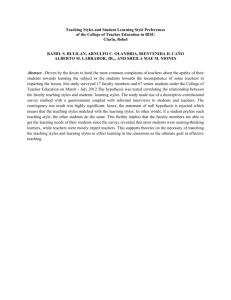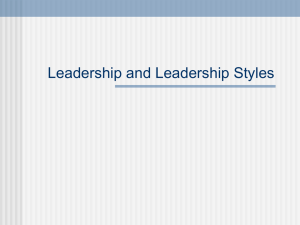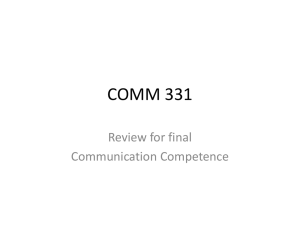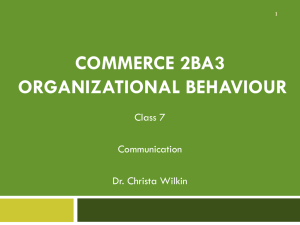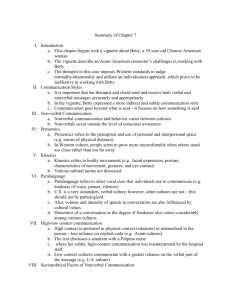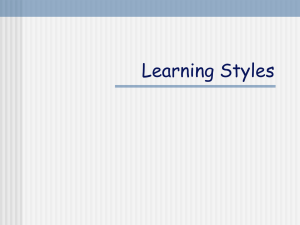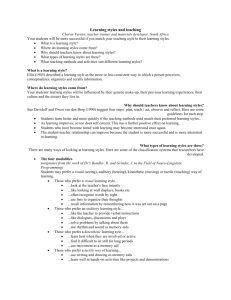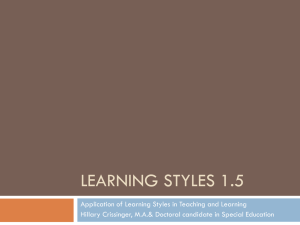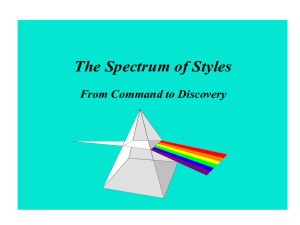Education: Values, Expectations & Cultural Differences
advertisement
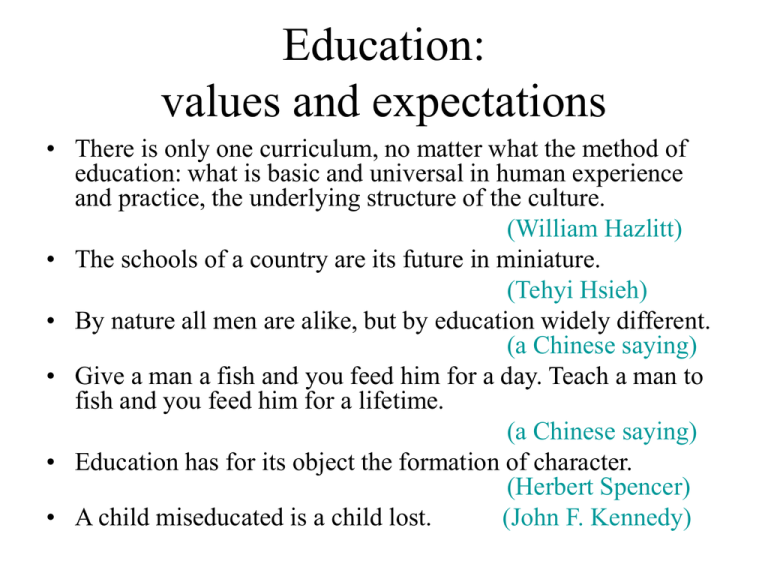
Education: values and expectations • There is only one curriculum, no matter what the method of education: what is basic and universal in human experience and practice, the underlying structure of the culture. (William Hazlitt) • The schools of a country are its future in miniature. (Tehyi Hsieh) • By nature all men are alike, but by education widely different. (a Chinese saying) • Give a man a fish and you feed him for a day. Teach a man to fish and you feed him for a lifetime. (a Chinese saying) • Education has for its object the formation of character. (Herbert Spencer) • A child miseducated is a child lost. (John F. Kennedy) Major topics: 1. 2. 3. 4. 5. 6. 7. 8. Functions of education Educational differences Skillful kids Hierarchy of learning skills The progression model Ranges of values The honor system What is expected of foreign graduate students in the United States? Functions of Education • Schools help fashion the individual: thinking, behavior, guidelines, values, for a productive, successful and satisfying life. • Schools are a primary means by which a culture’s history and traditions are passed from generation to generation. Education is the transmission of civilization. • Schools teach the informal knowledge of a culture: rules of conduct, a hierarchy of cultural values, how to treat one another, gender-role expectations, respect, etc. Educational Differences • Educational differences can be found in: what a culture emphasizes how the content is taught e.g. the teaching of history, language • Each culture, whether consciously or unconsciously, tends to glorify its historical, scientific, and artistic accomplishments and to minimize the accomplishments of other cultures. (Ethnocentrism) • How students participate in the learning process • Authority vested in the teacher • Nonverbal aspects: space, distance, time and dress codes Learning Style Differences A learning style is a particular way that an individual receives and processes information. Reid(1998)将学习风格分为以生理为基础的视 觉、听觉、触觉、体动、小组和独自感知学习模 式; 包括四个范畴的情感和性格方面的学习风格:内 向/外向型、明智/冲动型、思考/情感型、判断/感 觉型;场独立/场依存型、分析/综合型、审慎/冲 动型认知学习风格。 Learning styles vary from culture to culture. Cognitive styles Field independence Vs field sensitivity Cooperation Vs competition Trial-and-error Vs watch-then-do Tolerance Vs intolerance for ambiguity • A field-dependent person has difficulty finding a geometric shape that is embedded or "hidden" in a background with similar (but not identical) lines and shapes. The conflicting patterns distract the person from identifying the given figure. • A person who is field-independent can readily identify the geometric shape, regardless of the background in which it is set. • There is also a strong connection between this cognitive style and social interactions. People who are fielddependent are frequently described as being very interpersonal and having a well-developed ability to read social cues and to openly convey their own feelings. Others describe them as being very warm, friendly, and personable. • Women are more likely to be field-dependent, whereas men are frequently field-independent. Cognitive styles Communication and relational styles Formal Vs informal communication Nonverbal communication Dependent Vs independent learning Participatory Vs passive learning Reflectivity Vs impulsivity Aural, visual and verbal learners Energetic learning Vs calm learning Motivational Styles • Intrinsic Vs extrinsic motivation • Learning on demand Vs learning what is relevant or interesting Education in South East Asian Countries • Education as the single most important factor in their children’s future success • Teachers esteemed as role models • Group solidarity and conformity – two important values • Moral education as well as standard subjects teaching • A national standardized curriculum; few electives • Reading and writing highly emphasized • Show respect by avoiding eye contact, open disagreement, deferring to the teacher’s judgment, and by keeping silent Education in the United States • Critical thinking, judgmental questioning, and active initiation of discussion • Independent learning • Direct and informal communication • Impulsive and quick responses to questions • Learn by doing • Intolerance for ambiguity, a lot of clarification Case Study • The best way to learn • Moving too fast The honor system • Students should be honest in all areas of schoolwork. • Violation of the honor system can result in failing a course, having a permanent record of the violation in the student’s files, and even being suspended or expelled from the university. Academic dishonesty includes: • Plagiarism • Cheating • Fabrication • Aiding dishonesty • Falsification of records and official documents • Skillful Kids • Hierarchy of Learning Skills • The Progression Model
